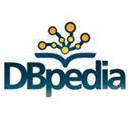Uncovering the Best YAGO Alternatives for Semantic Knowledge
YAGO2s stands as a monumental semantic knowledge base, meticulously derived from sources like Wikipedia, WordNet, and GeoNames. Boasting over 10 million entities and 120 million facts, YAGO is renowned for its 95% confirmed accuracy, temporal and spatial anchoring, and comprehensive integration of WordNet's clean taxonomy with Wikipedia's rich category system. Despite its impressive capabilities, specific project needs or preferences might lead you to seek a robust YAGO alternative. This article delves into top-tier options that offer similar functionalities for those in pursuit of comprehensive semantic knowledge graphs.
Top YAGO Alternatives
When searching for a knowledge base that offers the depth and breadth of YAGO, several excellent options stand out. These alternatives provide diverse approaches to semantic data, catering to various requirements for accuracy, openness, and integration.

Freebase
Freebase is a free, web-based knowledge graph that serves as an excellent YAGO alternative, particularly for those seeking a vast, interconnected dataset. It comprises tens of millions of topics, thousands of types, and tens of thousands of properties, making it a comprehensive database for general knowledge. Its free and web-based platform makes it highly accessible for a wide range of projects.

DBpedia
DBpedia is a large, multilingual, semantic knowledge graph that extracts structured information from Wikipedia, positioning it as a strong open-source YAGO alternative. Available across multiple platforms including Mac, Windows, Linux, and Web, DBpedia supports various programming languages like Python, JavaScript, Scala, and Java. It provides a public data infrastructure for linked data, making it ideal for researchers and developers building semantic web applications.

OpenCyc
OpenCyc is the open version of Cyc technology, recognized as the world's largest and most complete general knowledge base and commonsense reasoning engine. As a free YAGO alternative available for Windows and Linux, OpenCyc excels in artificial intelligence, knowledge base management, and natural language processing. It's particularly well-suited for projects requiring advanced reasoning capabilities and a strong foundation in common sense knowledge.
The landscape of semantic knowledge bases is rich and varied. While YAGO offers unparalleled accuracy and unique features, the alternatives discussed – Freebase, DBpedia, and OpenCyc – provide compelling options with their own strengths in terms of openness, platform support, and specific feature sets. We encourage you to explore these YAGO alternatives to find the best fit for your specific data and application development needs.